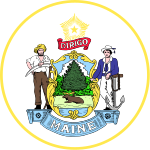
The 1978 United States Senate elections were held on November 7, in the middle of Democratic President Jimmy Carter's term. The 33 seats of Class 2 were contested in regular elections. Special elections were also held to fill vacancies.

The 1974 United States Senate elections were held on November 5, with the 34 seats of Class 3 contested in regular elections. They occurred in the wake of the Watergate scandal, Richard M. Nixon's resignation from the presidency, and Gerald Ford's subsequent pardon of Nixon. Economic issues, specifically inflation and stagnation, were also a factor that contributed to Republican losses. As an immediate result of the November 1974 elections, Democrats made a net gain of three seats from the Republicans, as they defeated Republican incumbents in Colorado and Kentucky and picked up open seats in Florida and Vermont, while Republicans won the open seat in Nevada. Following the elections, at the beginning of the 94th U.S. Congress, the Democratic caucus controlled 60 seats, and the Republican caucus controlled 38 seats.

The 1970 United States Senate elections was an election for the United States Senate. It took place on November 3, with the 33 seats of Class 1 contested in regular elections. Special elections were also held to fill vacancies. These races occurred in the middle of Richard Nixon's first term as president. The Democrats lost a net of three seats, while the Republicans and the Conservative Party of New York picked up one net seat each, and former Democrat Harry F. Byrd Jr. was re-elected as an independent.

The 1966 United States Senate elections were elections on November 8, 1966, for the United States Senate which occurred midway through the second term of President Lyndon B. Johnson. The 33 seats of Class 2 were contested in regular elections. Special elections were also held to fill vacancies. With divisions in the Democratic base over the Vietnam War, and with the traditional mid-term advantage of the party not holding the presidency, the Republicans took three Democratic seats, thereby breaking Democrats' 2/3rds supermajority. Despite Republican gains, the balance remained overwhelmingly in favor of the Democrats, who retained a 64–36 majority. Democrats were further reduced to 63–37, following the death of Robert F. Kennedy in June 1968.

The 1954 United States Senate elections was a midterm election in the first term of Dwight D. Eisenhower's presidency. The 32 Senate seats of Class 2 were contested in regular elections, and six special elections were held to fill vacancies. Eisenhower's Republican party lost a net of two seats to the Democratic opposition. This small change was just enough to give Democrats control of the chamber with the support of an Independent who agreed to caucus with them, he later officially joined the party in April 1955.
The 1847 Massachusetts gubernatorial election was held on November 8.

A general election was held in the U.S. state of Wyoming on Tuesday, November 3, 1942. All of the state's executive officers—the governor, secretary of state, auditor, treasurer, and superintendent of public instruction—were up for election. Like the 1938 elections, this year's elections were something of a mixed bag for both parties. Democratic secretary of state Lester C. Hunt successfully defeated Republican governor Nels H. Smith for re-election, but Republicans flipped the secretary of state's office in Hunt's absence. The other incumbents—State Auditor William M. Jack, a Democrat, and Superintendent Esther L. Anderson, a Republican—were re-elected, and Republicans held onto the state treasurer's office.

The 1834 Rhode Island gubernatorial election was held on April 16, 1834.

The 1839 Rhode Island gubernatorial election was held on April 17, 1839.
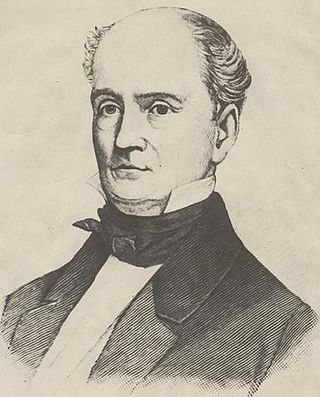
The 1845 Vermont gubernatorial election was held on September 2, 1845.

The 1842 Maine gubernatorial election was held on 12 September 1842 in order to elect the Governor of Maine. Incumbent Democratic Governor of Maine John Fairfield won re-election against Whig nominee and former U.S. Representative from Maine's 3rd congressional district Edward Robinson and Liberty Party candidate and former member of the Maine House of Representatives James Appleton.
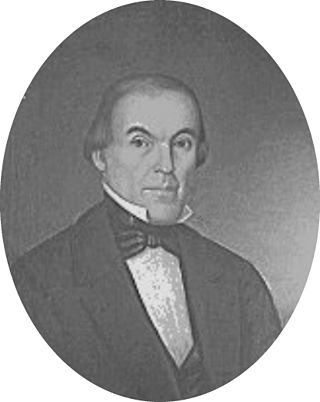
The 1845 New Hampshire gubernatorial election was held on 11 March 1845 in order to elect the Governor of New Hampshire. Incumbent Democratic Governor John Hardy Steele won re-election against Whig nominee and former member of the New Hampshire House of Representatives Anthony Colby and Liberty nominee Daniel Hoit in a rematch of the previous election.

The 1853 New Hampshire gubernatorial election was held on 8 March 1853 in order to elect the Governor of New Hampshire. Incumbent Democratic Governor Noah Martin won re-election against Whig nominee and former member of the New Hampshire House of Representatives James Bell and Free Soil Party nominee John H. White.
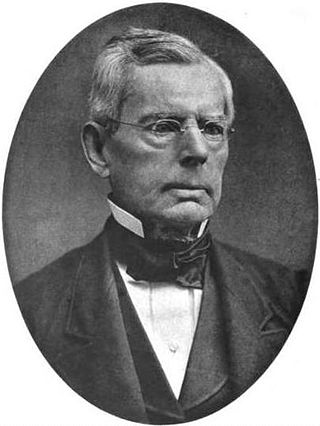
The 1843 Maine gubernatorial election was held on 11 September 1843 in order to elect the Governor of Maine. Democratic nominee and former member of the U.S. House of Representatives from Maine's 6th district Hugh J. Anderson defeated Whig nominee and former U.S. Representative from Maine's 3rd congressional district Edward Robinson, Liberty Party candidate and former member of the Maine House of Representatives James Appleton and incumbent Independent Democratic Governor Edward Kavanagh.

The 1844 Maine gubernatorial election was held on 9 September 1844 in order to elect the Governor of Maine. Incumbent Democratic Governor Hugh J. Anderson won re-election against Whig nominee and former U.S. Representative from Maine's 3rd congressional district Edward Robinson and Liberty Party candidate and former member of the Maine House of Representatives James Appleton.

The 1847 Maine gubernatorial election was held on 13 September 1847 in order to elect the Governor of Maine. Incumbent Democratic Governor John W. Dana won re-election against Whig nominee and former member of the Maine Senate David Bronson and Liberty Party candidate and former member of the Massachusetts State Senate Samuel Fessenden in a rematch of the previous election.

The 1850 Maine gubernatorial election was held on 9 September 1850 in order to elect the Governor of Maine. Incumbent Democratic Governor John Hubbard won re-election against Whig nominee William G. Crosby and Free Soil Party nominee George F. Talbot.

The 1852 Maine gubernatorial election was held on 13 September 1852 in order to elect the Governor of Maine. Whig nominee William G. Crosby defeated incumbent Democratic Governor John Hubbard, Anti-Maine Law nominee Anson G. Chandler and Free Soil Party nominee and former member of the Maine Senate Ezekiel Holmes. However, as no candidate received a majority of the total votes cast as was required by Maine law, the election was forwarded to the Maine legislature, who chose Crosby as governor, despite the fact he only came in second in the popular vote.

The 1853 Maine gubernatorial election was held on 12 September 1853 in order to elect the Governor of Maine. Incumbent Whig Governor William G. Crosby defeated Democratic nominee Albert Pillsbury, Anti-Maine Law nominee Anson Morrill and Free Soil Party nominee and former member of the Maine Senate Ezekiel Holmes. However, as no candidate received a majority of the total votes cast as was required by Maine law, the election was forwarded to the Maine legislature, who chose Crosby as governor, despite the fact he only came in second in the popular vote.
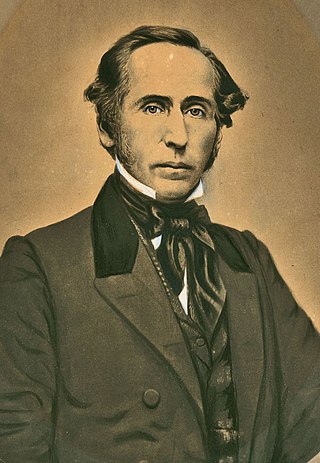
The 1855 Maine gubernatorial election was held on 10 September 1855 in order to elect the Governor of Maine. Democratic nominee and former member of the Maine House of Representatives Samuel Wells defeated incumbent Republican Governor Anson Morrill and Whig nominee and former member of the U.S. House of Representatives from Maine's 4th district Isaac Reed. However, as no candidate received a majority of the total votes cast as was required by Maine law, the election was forwarded to the Maine legislature, who chose Wells as governor, despite the fact he only came in second in the popular vote.
